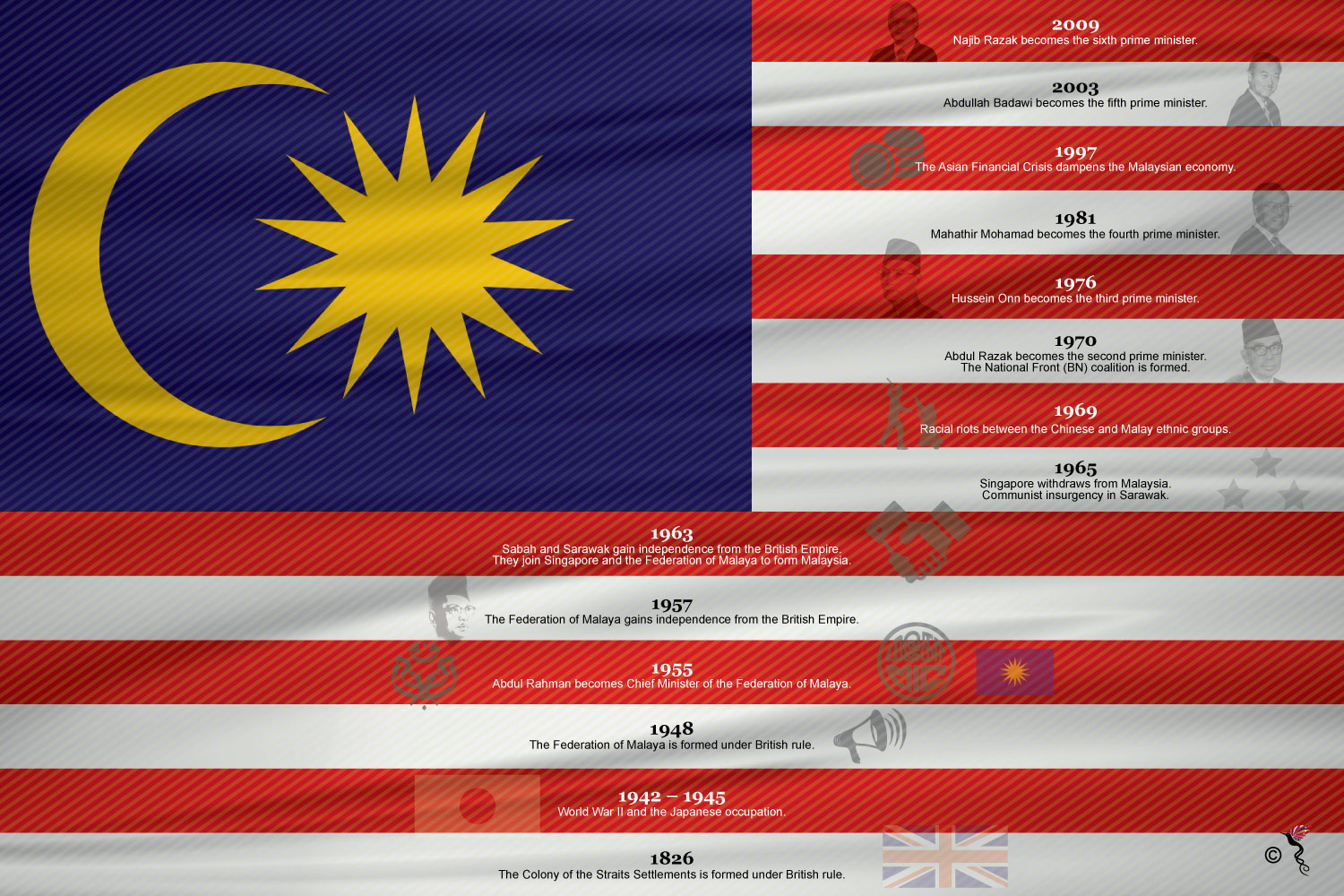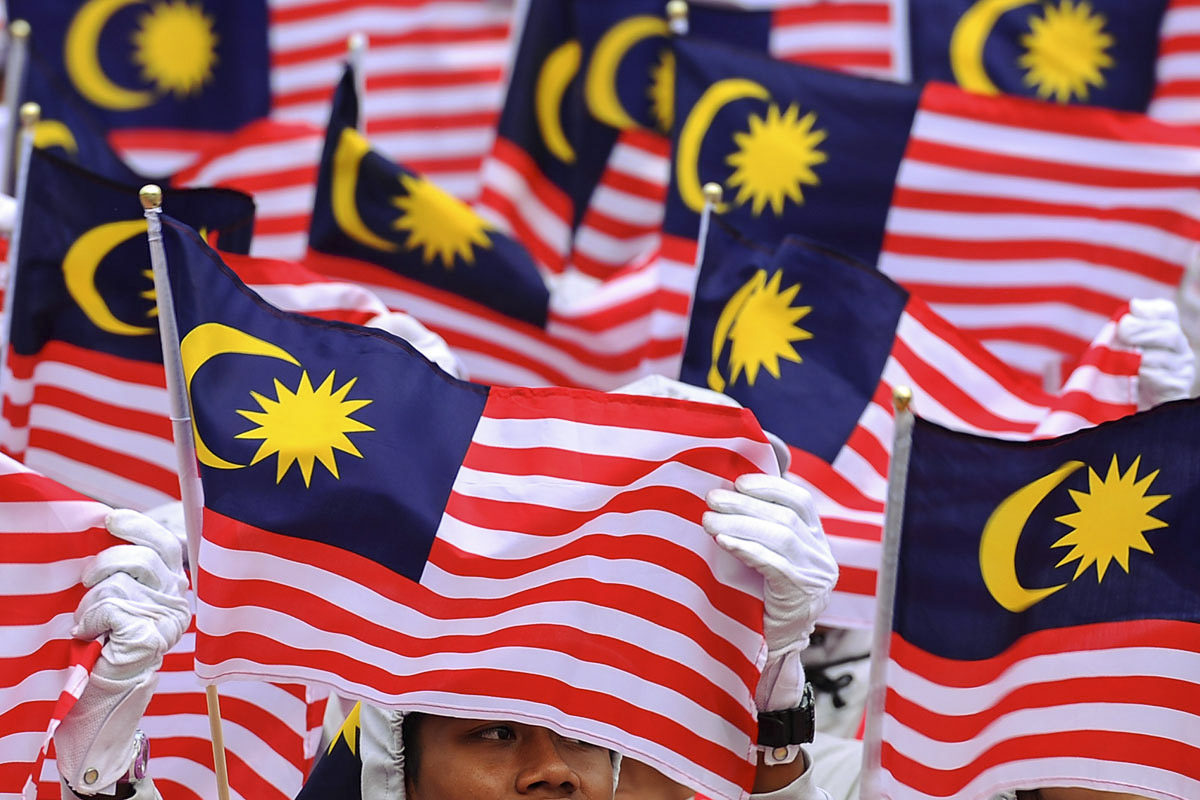Malaysia (known as the Federation of Malaya at the time of its independence ) celebrated its first Independence Day when the first Malaysian prime minister Abdul Rahman hailed the word "merdeka" - independence in the Malay language - seven times and read out the 1957 Proclamation of Independence in front of thousands of Malaysians on August 31, 1957. Recognised fondly as the "Father of Independence", Rahman played a pivotal role in the nation's fight for independence from the British Empire.
Sixty years after its independence, this significant moment in history is still embedded in the minds of many Malaysians as citizens come together once again to celebrate the "Diamond Jubilee" of this Southeast Asian nation. The "Jalur Gemilang" (national flag of Malaysia) was raised as the national anthem of Malaysia was playing in the background at the national stadium. Themed "Negaraku Sehati Sejiwa" ("My Country One Heart One Soul" in the Malay language), this independence day celebration aims to enhance the spirit of togetherness and love for the country among Malaysians regardless of racial and cultural background, in the spirit of "1Malaysia" - a concept designed by current Malaysian Prime Minister Najib Razak to emphasise on ethnic harmony, national unity, and efficient governance.

The chronology of Malaysia’s road to independence and timeline of the Malaysian prime ministers.
The image used as the background in the infographic above is the national flag of Malaysia, or proudly known to Malaysians as the "Jalur Gemilang" ("Stripes of Glory" in the Malay language). The flag’s name was selected to project the country’s drive towards continuous growth and success. The "Jalur Gemilang" is made up of 14 alternating white and red stripes of equal width to represent the equality between all 13 member states and the federal government while the 14 points of the star refer to the unity between them. The colour red signifies strength, bravery and courage whereas white symbolises honesty and integrity. The crescent represents the country’s official religion – Islam. The blue canton symbolises unity among Malaysians while yellow is the royal colour of the rulers.
Malaysia, the miniature ASEAN
ASEAN (Association of Southeast Asia Nations) is unique for its ability to unite people from different cultures, traditions, religious beliefs and sentiments to live harmoniously by creating a tight-knit community. In this context, Malaysia could be viewed as a miniature ASEAN – where there is unity in diversity.
"Hari Merdeka", or independence day in the Malay language, is not only a day to celebrate the nation's independence, but also a day to rejoice in the diversities of the nation as a multi-racial, multi-religious and multi-cultural community. Despite their differences, Malaysians have long acknowledged the principle of tolerance and acceptance to ensure that the country remains peaceful. The nation and its leaders have always encouraged moderation and mutual respect for one another which genuinely coexist with the understanding that this nation was built on hard work and sacrifices of the forefathers, be it Malay, Chinese, Indian or other ethnics.
During the European colonial period, the British Empire brought immigrants from China and India to work in its tin mines and plantations. After years of "naturalisation", they have formed a multi-ethic community with the local Malays in Malaysia.
The unity in diversity has always been the strength of the nation as the community continues to value oneness of "1Malaysia" – the same way that it has been for ASEAN – in accomplishing peace, progress and prosperity.
In the spirit of its independence day, Najib calls on Malaysians to remain united as the country’s future is in the hands of its citizens. In the one-minute video released on his official social media platform, he acknowledges that each member of its society has contributed to the progress on technology and modernisation that the country has made thus far. The progressive and harmonious qualities of Malaysians have distinguished the nation from other countries around the world.
Being Malaysian
On the eve of Malaysia's 60th Independence Day, which coincided with the closing of the 29th SEA (Southeast Asian) Games, Najib shouted "merdeka" seven times – in the same manner as Rahman – when the entire stadium erupted with cries of joy and patriotism as Malaysians from all walks of life came together as a nation. Apart from celebrating its independence, Malaysia commemorates those who has sacrificed to fight for the peace and freedom of the nation.
If the recently concluded SEA Games is anything to go by, Malaysia has come a long way since 1957 in economic prosperity, social progress, and sociocultural evolution. Topping the medal tally with 145 gold medals, Malaysian fans of different shapes and sizes gathered to cheer for their representatives regardless of race and religion. A total of 404 events from 38 spots were successfully held in modern infrastructures all across the nation - an accomplishment that Malaysians should be proud of.
With this, The ASEAN Post would like to take this opportunity to wish all Malaysians a happy 60th Independence Day. As they say it in Malaysia, "Selamat Hari Merdeka!"
